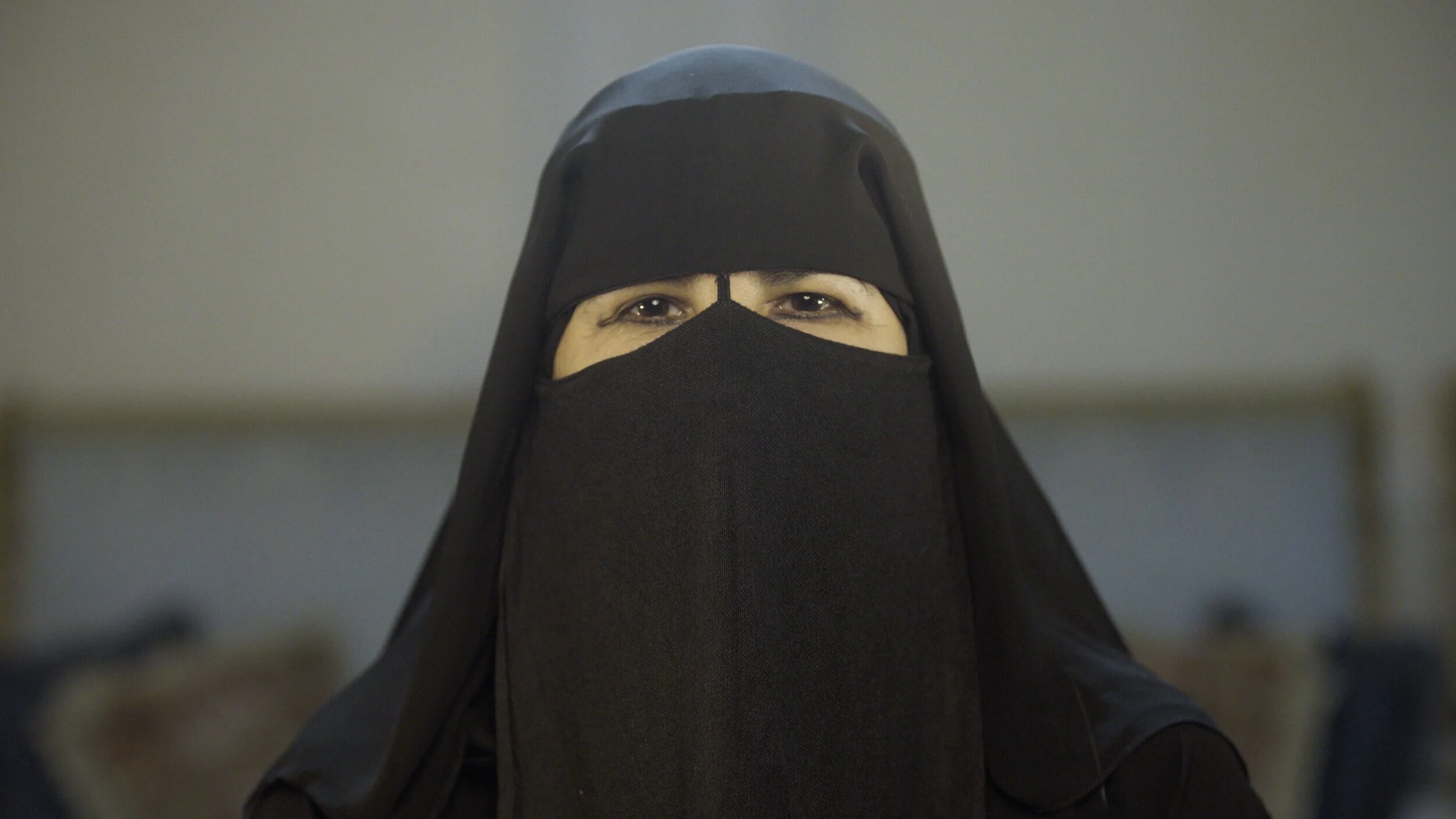The Poetess
Meet a woman whose art as a writer daringly combines the personal and the political.
In some ways, my rating here seems rather harsh, but I have to remind myself that it is the film that I am assessing and not the appeal of Hissa Halal who is the subject of this documentary. I had not heard of her before seeing this film but making her acquaintance through this work is a pleasure. As a Saudi poetess who refused to accept that her sex should preclude her from becoming a contestant in the popular Abu-Dhabi TV show Million’s Poet, she will win the approval of all feminists and their supporters. As a devout believer in Islam who through one of her poems recited on the show bravely questioned the use of fatwas, she will be applauded by all true believers who see Jihadist interpretations of Islam as a falsification.
The Poetess puts Hissa Halal, still veiled, in front of the camera to tell her story and, quite reasonably, it follows the usual structure applied to films about a competitive event: having explained how Hissa came to audition for Million’s Poet, it follows her through three rounds to reach a climax when she became the first female contestant to reach the final. Background information on her life (she has a supportive husband and is a mother) is interspersed, as are views on changes in Saudi society since the 1970s, between the footage showing each session of Million’s Poet.
Hissa was not yet seven when her family moved from the desert to the city and consequently, when observing life in Riyadh, she is aware of how in her early childhood Bedouin women had a freedom that has been lost: she can remember when wearing the burqa was logical being used as a protection against the sun and when strangers appeared. Later in life, she would become aware of how religion became politicised as a form of control over the people.
The best thing about The Poetess is Hissa Hilal herself. She emerges as simple and direct, but all the more engaging because she is clearly sensible and her views are fully considered and not without understanding of those who disagree with her. In making their film Stefanie Brockhaus and Andreas Wolff play to her strengths for much of the time. However, the last third, leading slowly up to the finale of Million’s Poet, comes to seem over-extended and somewhat less personal. Killings in Mecca in 1979 are certainly relevant in the history of tightening control by the authorities, but it is characteristic of this part of the film that it indulges itself by incorporating poor quality video footage of the tragic event. There is a distinct sense that the standard of the first two-thirds is not fully maintained. Nevertheless, Hissa, who declares that women are the soul of society, is herself the soul of this film and emerges as someone who is invaluable.
MANSEL STIMPSON
Featuring Hissa Hilal, Fadel Al-Shamery, Nouf Al-Shamery, Sara Al-Shamery and Reem Al-Shamery.
Dir Stefanie Brockhaus and Andreas Wolff, Pro Andreas Wolff, Screenplay Stefanie Brockhaus and Andreas Wolff, PhStefanie Brockhaus and Tobias Tempel, Ed Anja Pohl and Hansjörg WeiBbrich, Music Sebastian Zenke.
ARTE/Brockhaus/Wolff Films/Film Fernseh Fonds Bayern/ZDF-DocHouse.
89 mins. Germany/United Arab Emirates. 2017. Rel: 11 May 2018. No Cert.


